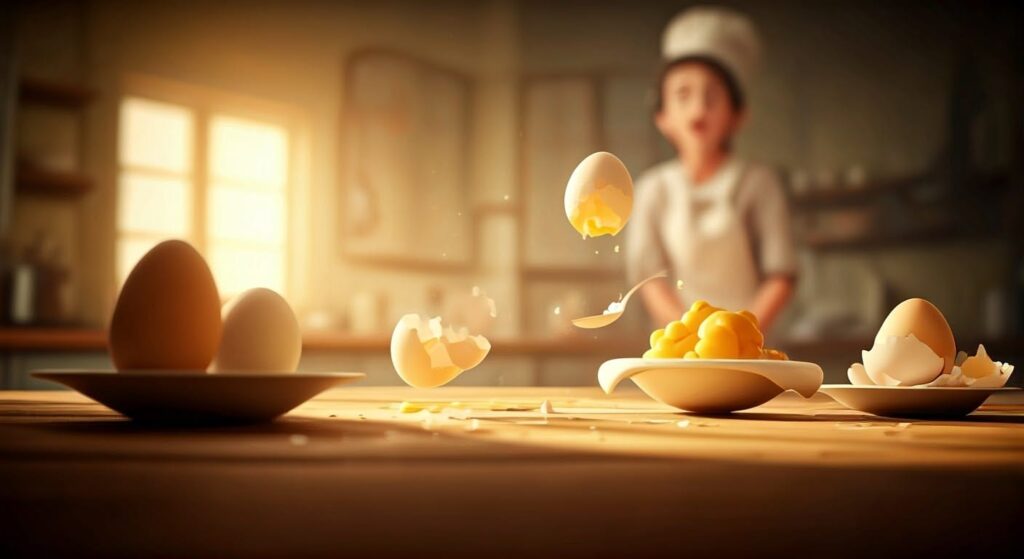In Barb Taylor’s delightful poem Scrambled Eggs, a simple mishap turns into a subtle but beautiful story of partnership. At first glance, it’s about a man delivering fresh eggs on a motorcycle, but it’s about the quiet teamwork between husband and wife. Though brief and understated, their interaction reflects a deeper theme of mutual understanding, unspoken support, and everyday cooperation that keeps a home running smoothly.
The story begins with a man riding his motorcycle to visit a friend. “A man rode his motorcycle to see a special friend. / He spent several hours there until the day’s end.”

His friend offers him some farm-fresh eggs, and the man, wanting to do something kind—accepts and takes them home to his wife.
He carefully places the eggs into a cardboard box lined with foam and paper, then secures the box into his motorcycle’s storage. “The man decided he would travel slowly down the road. / After all, he was hauling a fragile load.”
Despite his caution, things don’t go quite as planned. He hits a pothole. He crosses railroad tracks. By the time he gets home, the fragile eggs have suffered.
Still, he walks into the kitchen with optimism, saying, “Here are the eggs from our special friend,” and gives his wife a wink.
Then, without fuss, he heads outside to do chores, trusting that his wife will handle the rest. This moment, light and sweet on the surface, shows how everyday couples function: One acts, the other adjusts.
His wife, who had just cleaned the house, opens the box to find a gooey mess. “Oh no!! Many eggs were cracked and oozing all over the place. / It was a real mess—a total disgrace!”
But instead of complaining or scolding, she simply sighs, frowns, and gets to work. She then decided to sort the eggs, and she would use what she could.
Choosing Action over Blame
This quiet decision—choosing action over blame is the soul of domestic partnership. The wife doesn’t dwell on what went wrong. She looks at what can be saved. She flips through her cookbook, finds recipes, and turns the cracked eggs into a custard pie and a chocolate cake. She found a recipe for a custard pie and a favorite chocolate cake. She thought that wasting the eggs would be a big mistake.
By the time her husband returns, the kitchen is clean, the desserts are ready, and she delivers her verdict with a touch of playful firmness. She told him she did not want any more eggs delivered by motorcycle or scrambled in a box. It’s not anger but it’s a boundary spoken with affection.
The beauty of Scrambled Eggs is that it doesn’t romanticize marriage with grand gestures. Instead, it shows how couples often support each other in small, thoughtful ways. The husband tries to do something nice. The wife handles the fallout. Together, they make it work.
What makes this interaction so genuine is the lack of drama. There’s no shouting, no exaggerated emotion. Just a sigh, a pie, and a soft scolding. It’s a reminder that partnership is built not on perfection but on patience, effort, and a shared sense of humor.
In many ways, Scrambled Eggs is a love story told through chores and cracked shells. It’s about knowing your partner’s quirks, accepting their flaws, and still choosing to move forward, sometimes with a whisk in hand.
Finding Strength in Small Moments
So, the next time there’s a mess in your home, think of the wife who turned disaster into dessert. Think of the husband who meant well, even if the eggs didn’t survive the ride. And remember that domestic partnership isn’t always about big moments—it’s about the small ones we handle together.
Because at the end of the day, love often looks like sorting broken eggs and smiling through the cleanup.
